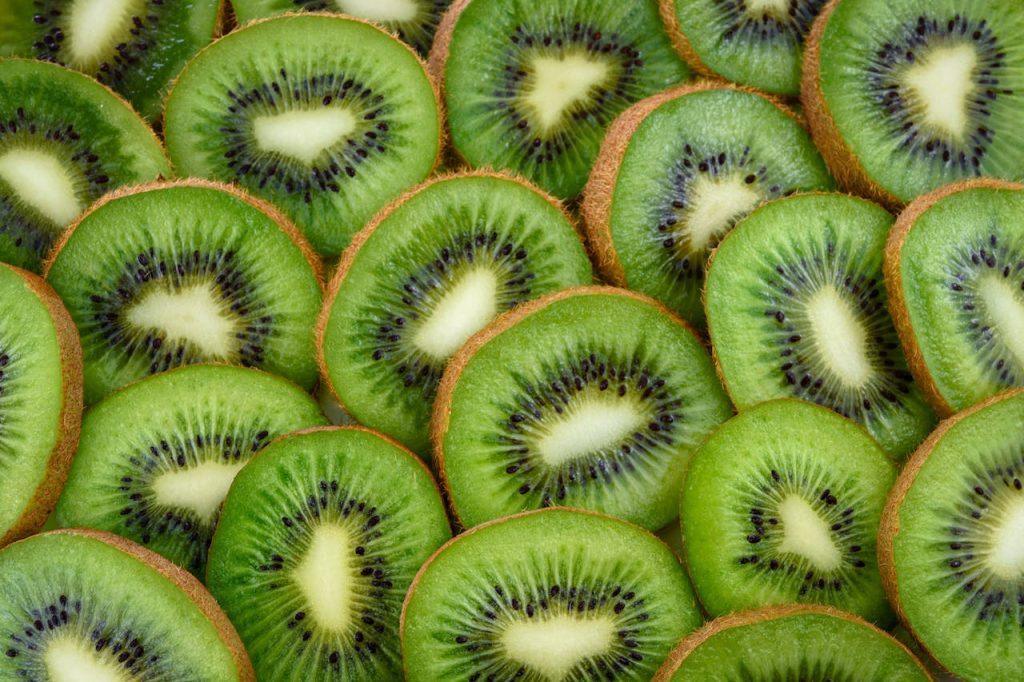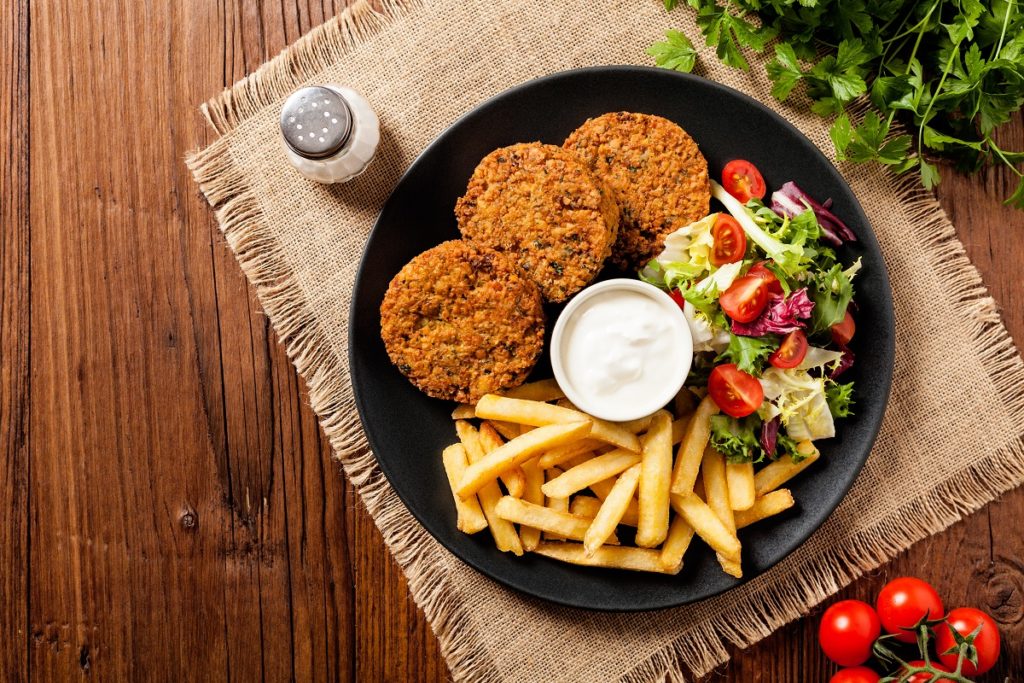The vegan diet has seen a remarkable surge in popularity, with statistics indicating a global increase in plant-based eating. In the United States alone, the percentage of people identifying as vegans has risen significantly over the past decade. This shift reflects the growing awareness of health, environmental, and ethical concerns associated with animal products.
Vitamin E plays a crucial role in maintaining overall health, acting as a powerful antioxidant. For vegans, obtaining adequate vitamin E is especially important due to the exclusion of traditional sources like dairy and meat. Ensuring sufficient intake through plant-based foods is key to a balanced vegan diet.
What Is Vitamin E, and Why Is It Important?
Vitamin E is a group of eight fat-soluble compounds, with alpha-tocopherol being the most active form in humans. It’s a powerful antioxidant, meaning it helps neutralize free radicals, which are unstable molecules that can damage cells and contribute to aging and diseases like cancer and heart disease. This protective role makes vitamin E crucial for maintaining cellular health and a robust immune system.
Beyond its antioxidant properties, vitamin E plays a vital role in several other bodily functions. It aids in the formation of red blood cells and helps the body use vitamin K, which is important for blood clotting and bone health. Additionally, vitamin E is involved in cell signaling and regulation of gene expression, making it integral to numerous metabolic processes.
For people following a vegan diet, ensuring adequate vitamin E intake is essential as some of the richest sources are animal-based, like dairy products and meats. However, many plant-based foods are also rich in vitamin E, such as nuts, seeds, and certain vegetables and fruits. This makes a well-planned vegan diet capable of providing sufficient amounts of this essential nutrient. The importance of vitamin E, particularly for those on a vegan diet, lies in its wide-ranging benefits for health and its role in preventing chronic diseases.
Veganism and Dietary Challenges
Veganism, a diet excluding all animal products, poses unique dietary challenges. While offering health and ethical benefits, it requires careful planning to ensure nutritional completeness. Key challenges include:
- Protein Intake: Animal products are primary protein sources, rich in essential amino acids. Plant-based proteins, except soy, are typically incomplete, lacking one or more essential amino acids. Vegans must consume a variety of protein-rich plants like legumes, nuts, and seeds to meet their needs.
- Vitamin B12 Deficiency: This vital nutrient, naturally present only in animal products, is essential for nerve function and blood formation. Vegans need to rely on fortified foods or supplements to prevent deficiency.
- Iron Absorption: Plant-based iron (non-heme iron) is less absorbable than the heme iron found in animal products. This can lead to iron-deficiency anemia if not managed through diet or supplements. Consuming vitamin C-rich foods alongside iron-rich plant foods can enhance absorption.
- Calcium and Vitamin D: Crucial for bone health, these nutrients are abundant in dairy but less so in plant-based foods. Vegans need to seek out fortified options or supplements to maintain bone strength.
- Omega-3 Fatty Acids: Essential for heart and brain health, omega-3s are primarily found in fish. Vegans can source these from flaxseeds, chia seeds, and algae-based supplements.
- Zinc: This mineral, important for immune function and metabolism, is more bioavailable in animal products. Plant-based sources like legumes and nuts are good options, but vegans may need to consume more to meet their needs.
Despite these challenges, a well-planned vegan diet can be nutritionally adequate and health-promoting. It requires mindfulness in food choices and sometimes supplementation to ensure all dietary needs are met. With growing vegan food options and better awareness, managing these challenges is increasingly feasible.
Natural Sources of Vitamin E in a Vegan Diet
In a vegan diet, obtaining sufficient vitamin E is crucial, and thankfully, there are numerous natural plant-based sources. Vitamin E, a fat-soluble antioxidant, plays a vital role in protecting cells from oxidative damage and supporting overall health. Here are some excellent vegan sources of vitamin E:
- Nuts and Seeds: Almonds are particularly high in vitamin E, making them an excellent snack or addition to meals. Sunflower seeds, hazelnuts, and pine nuts are also good sources. Including these in your diet can boost your vitamin E intake significantly.
- Vegetable Oils: Certain plant oils are among the richest sources of vitamin E. Wheat germ oil stands out, followed by sunflower, safflower, and soybean oils. Incorporating these oils in cooking or dressings can help increase vitamin E levels.
- Green Leafy Vegetables: Spinach, Swiss chard, and turnip greens contain moderate amounts of vitamin E. Regular consumption of these vegetables contributes to meeting vitamin E needs and provides other essential nutrients.
- Fortified Foods: Some plant-based milk and cereals are fortified with vitamin E. Choosing fortified products can be an effective way to ensure adequate intake, especially in a vegan diet.
- Fruits: Certain fruits like avocados and kiwis are good sources of vitamin E. Avocados, in particular, are not only rich in vitamin E but also healthy fats that aid in the absorption of fat-soluble vitamins.
- Whole Grains: Whole grains like brown rice, oats, and barley provide some vitamin E. Including a variety of whole grains in your diet can contribute to your overall nutrient intake.
It’s important to include a variety of these sources in a vegan diet to ensure a sufficient intake of vitamin E. This diversity not only helps in meeting nutritional requirements but also makes meals more enjoyable and healthful.
Vegan-Friendly Vitamin E Supplements
Vitamin E supplements can be a useful addition to a vegan diet, especially when dietary intake is insufficient or for individuals with specific health needs. However, selecting vegan-friendly vitamin E supplements requires understanding their composition and sources.
Understanding Vitamin E Supplements
- Natural vs. Synthetic: Vitamin E supplements come in natural and synthetic forms. The natural form is labeled as “d-alpha-tocopherol,” while synthetic forms are indicated as “dl-alpha-tocopherol.” Natural forms are generally considered more effective as they are better retained by the body.
- Source: Most vitamin E supplements are derived from soybean oil, which is generally vegan. However, some supplements may contain vitamin E derived from animal sources like fish oil or gelatin capsules. It’s crucial to read labels to ensure the supplement is vegan.
- Tocopherol Variants: Vitamin E is a complex of eight different tocopherols and tocotrienols. Most supplements contain only alpha-tocopherol, but full-spectrum supplements with mixed tocopherols can offer broader benefits.
Choosing Vegan-Friendly Supplements
- Certifications: Look for certifications like “Certified Vegan” or “Vegan Society Approved” on labels. These certifications guarantee that the product is free from animal-derived ingredients and is suitable for vegans.
- Capsule Material: Ensure that the capsule is vegan-friendly. Gelatin capsules are animal-based, whereas cellulose or other plant-based materials are suitable for vegans.
- Additional Ingredients: Check for other non-vegan ingredients like colorants, fillers, or stabilizers. Supplements should be free from such additives or should use vegan alternatives.
- Allergens: Many vitamin E supplements are derived from soy, a common allergen. If you have a soy allergy, look for soy-free options.
Considerations and Usage
- Dosage: The recommended dietary allowance (RDA) for vitamin E varies by age and gender. It’s important to follow the dosage instructions on the supplement or consult with a healthcare provider.
- Interactions and Side Effects: High doses of vitamin E can interact with certain medications and have potential side effects. Consult with a healthcare professional, especially if you have underlying health conditions or are taking other medications.
- Balanced Diet: Supplements should complement, not replace, a balanced diet. It’s best to obtain nutrients from food sources whenever possible, as they offer a broader range of benefits and reduce the risk of excessive intake of a single nutrient.
How Much Vitamin E Do You Need Daily?
The Recommended Dietary Allowance (RDA) for vitamin E is expressed in milligrams (mg) of alpha-tocopherol, the most biologically active form of vitamin E. The RDA varies by age and sex:
- Infants (0-12 months): The Adequate Intake (AI) for infants, as they can’t be determined an RDA, is 4-5 mg/day.
- Children (1-8 years): The RDA increases with age, from 6 mg/day for 1-3 years old to 7 mg/day for 4-8 years old.
- Pre-teens and Teenagers (9-18 years): The RDA rises to 11 mg/day for ages 9-13 and 15 mg/day for ages 14-18.
- Adults (19 years and older): The general RDA for adults is 15 mg/day. This recommendation remains the same for pregnant women.
- Lactating Women: The RDA is slightly higher at 19 mg/day to account for the needs of breast milk production.
Factors Influencing Vitamin E Needs
- Dietary Choices: Those who consume a diet low in fat might have reduced vitamin E absorption since it is a fat-soluble vitamin. Conversely, a diet rich in polyunsaturated fatty acids increases the need for vitamin E due to its role in preventing lipid peroxidation.
- Health Conditions: Certain medical conditions, such as cystic fibrosis, Crohn’s disease, or liver diseases, can impair fat absorption, thereby affecting vitamin E absorption. Individuals with these conditions may require higher vitamin E intake.
- Age and Lifestyle: Older adults might need more vitamin E due to potential absorption issues or increased oxidative stress. Smokers may also require higher amounts due to increased oxidative stress from cigarette smoke.
How to Prevent Vitamin E Deficiency in Your Vegan Lifestyle
Preventing vitamin E deficiency in a vegan lifestyle involves a combination of dietary awareness and strategic food choices. Below are several strategies to ensure adequate vitamin E intake in a vegan diet:
1. Diversify Your Diet with Vitamin E-rich foods
Incorporating a variety of foods rich in vitamin E is key. These include:
- Nuts and Seeds: Almonds, sunflower seeds, and hazelnuts are excellent sources. Snack on them, sprinkle them on salads or add them to breakfast cereals.
- Vegetable Oils: Sunflower, safflower, and wheat germ oils are high in vitamin E. Use them in dressings and cooking, but be mindful of the quantity due to their high-calorie content.
- Green Leafy Vegetables: Spinach and kale provide moderate amounts of vitamin E. Include them in salads, smoothies, or as a side dish.
- Fortified Foods: Some plant-based milks and cereals are fortified with vitamin E. Opting for these can boost your intake.
2. Understand Fat’s Role in Vitamin E Absorption
Since vitamin E is fat-soluble, it requires dietary fat for optimal absorption. Include healthy fats in your meals, such as avocados, olive oil, or nuts, to enhance vitamin E absorption.
3. Plan Balanced Meals
A balanced vegan diet encompassing a wide range of fruits, vegetables, whole grains, nuts, and seeds will naturally include various sources of vitamin E, helping to prevent deficiencies.
4. Monitor Your Nutrient Intake
Be aware of your daily vitamin E intake. Utilize nutrition tracking apps or consult with a dietitian to ensure you’re meeting your requirements.
5. Consider Vitamin E Supplements if Necessary
If your diet lacks sufficient vitamin E, or if you have increased needs due to certain health conditions, consider vegan-friendly vitamin E supplements. Look for natural forms (d-alpha-tocopherol) and vegan-certified products.
6. Cook Smartly
Vitamin E can be lost during high-heat cooking. Opt for cooking methods that preserve nutrients, like steaming or sautéing, rather than deep-frying.
7. Stay Informed About Nutritional Updates
Nutritional science is ever-evolving. Stay informed about the latest research on vegan diets and vitamin E to ensure you’re following the best practices.
8. Regular Health Check-ups
Periodic blood tests can help monitor vitamin E levels, especially if you have dietary restrictions or health conditions affecting nutrient absorption.
Conclusion
Preventing vitamin E deficiency in a vegan lifestyle involves incorporating a variety of vitamin E-rich foods, understanding the role of fats in nutrient absorption, and potentially supplementing when necessary. Regular monitoring of nutrient intake and health check-ups can further ensure that dietary needs are met. Adopting these practices allows vegans to enjoy a balanced, nutrient-rich diet while reaping the benefits of their ethical and health-conscious choices.
Frequently Asked Questions
Is vitamin E plant-based?
Yes, vitamin E is found in plant-based sources like nuts, seeds, and vegetable oils.
What vegan foods have the most vitamin E?
Almonds, sunflower seeds, and spinach are among the vegan foods highest in vitamin E.
What is the best natural form of vitamin E?
The best natural form of vitamin E is d-alpha-tocopherol, which is more effectively utilized by the body.
How can I get enough vitamin E a day?
Consume a mix of nuts, seeds, green leafy vegetables, and plant oils daily to ensure adequate vitamin E intake.



